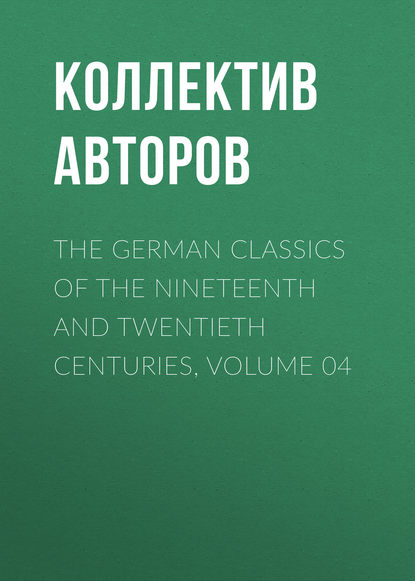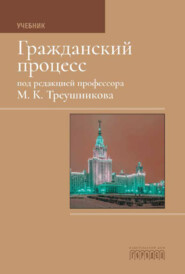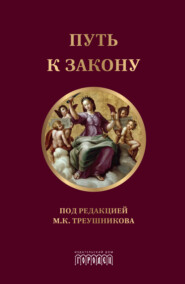По всем вопросам обращайтесь на: info@litportal.ru
(©) 2003-2024.
✖
The German Classics of the Nineteenth and Twentieth Centuries, Volume 04
Настройки чтения
Размер шрифта
Высота строк
Поля
"Sir, I'll tell you," answered the groom, "it was because they wanted to get rid of me, since, as long as I was there, they could not work the horses to death. Everywhere, in the yard, in the servants' hall, they made faces at me, and because I thought to myself, 'You can draw your jaws down until you dislocate them, for all I care,' they picked a quarrel and threw me out of the courtyard."
"But what provoked them?" cried Kohlhaas; "they must have had some sort of provocation!"
"Oh, to be sure," answered Herse; "the best imaginable! On the evening of the second day spent in the pigsty, I took the horses, which had become dirty in spite of my efforts, and started to ride them down to the horse-pond. When I reached the castle-gate and was just about to turn, I heard the castellan and the steward, with servants, dogs and cudgels, rushing out of the servants' hall after me and calling, 'Stop thief! Stop gallows-bird!' as if they were possessed. The gate-keeper stepped in front of me, and when I asked him and the raving crowd that was running at me, 'What in the world is the matter?'—'What's the matter!' answered the castellan, seizing my two black horses by the bridle. 'Where are you going with the horses?' he asked, and seized me by the chest. 'Where am I going?' I repeated. 'Thunder and lightning! I am riding down to the horse-pond. Do you think that I—?'—'To the horse-pond!' cried the castellan. 'I'll teach you, you swindler, to swim along the highroad back to Kohlhaasenbrück!' And with a spiteful, vicious jerk he and the steward, who had caught me by the leg, hurled me down from the horse so that I measured my full length in the mud. 'Murder! Help!' I cried; 'breast straps and blankets and a bundle of linen belonging to me are in the stable.' But while the steward led the horses away, the castellan and servants fell upon me with their feet and whips and cudgels, so that I sank down behind the castle-gate half dead. And when I cried, 'The thieves! Where are they taking my horses?' and got to my feet—'Out of the courtyard with you!' screamed the castellan, 'Sick him, Caesar! Sick him, Hunter!' and, 'Sick him, Spitz!' he called, and a pack of more than twelve dogs rushed at me. Then I tore something from the fence, possibly a picket, and stretched out three dogs dead beside me! But when I had to give way because I was suffering from fearful wounds and bites, I heard a shrill whistle; the dogs scurried into the yard, the gates were swung shut and the bolt shot into position, and I sank down on the highroad unconscious."
Kohlhaas, white in the face, said with forced jocularity, "Didn't you really want to escape, Herse?" And as the latter, with a deep blush, looked down at the ground—"Confess to me!" said he; "You didn't like it in the pigsty; you thought to yourself, you would rather be in the stable at Kohlhaasenbrück, after all!"
"Od's thunder!" cried Herse; "breast strap and blankets I tell you, and a bundle of linen I left behind in the pigsty. Wouldn't I have taken along three gold gulden that I had wrapped in a red silk neckcloth and hidden away behind the manger? Blazes, hell, and the devil! When you talk like that, I'd like to relight at once the sulphur cord I threw away!"
"There, there!" said the horse-dealer, "I really meant no harm. What you have said—see here, I believe it word for word, and when the matter comes up, I am ready to take the Holy Communion myself as to its truth. I am sorry that you have not fared better in my service. Go, Herse, go back to bed. Have them bring you a bottle of wine and make yourself comfortable; you shall have justice done you!" With that he stood up, made out a list of the things which the head groom had left behind in the pigsty, jotted down the value of each, asked him how high he estimated the cost of his medical treatment, and sent him from the room after shaking hands with him once more.
Thereupon he recounted to Lisbeth, his wife, the whole course of the affair, explained the true relation of events, and declared to her that he was determined to demand public justice for himself. He had the satisfaction of finding that she heartily approved his purpose, for, she said, many other travelers, perhaps less patient than he, would pass by the castle, and it was doing God's work to put a stop to disorders such as these. She added that she would manage to get together the money to pay the expenses of the lawsuit. Kohlhaas called her his brave wife, spent that day and the next very happily with her and the children, and, as soon as his business would at all permit it, set out for Dresden in order to lay his suit before the court.
Here, with the help of a lawyer whom he knew, he drew up a complaint, in which, after giving a detailed account of the outrage which Squire Wenzel Tronka had committed against him and against his groom Herse, he petitioned for the lawful punishment of the former, restoration of the horses to their original condition, and compensation for the damages which he and his groom had sustained. His case was indeed perfectly clear. The fact that the horses had been detained contrary to law threw a decisive light on everything else; and even had one been willing to assume that they had sickened by sheer accident, the demand of the horse-dealer to have them returned to him in sound condition would still have been just. While looking about him in the capital, Kohlhaas had no lack of friends, either, who promised to give his case lively support. His extensive trade in horses had secured him the acquaintance of the most important men of the country, and the honesty with which he conducted his business had won him their good will.
Kohlhaas dined cheerfully several times with his lawyer, who was himself a man of consequence, left a sum of money with him to defray the costs of the lawsuit and, fully reassured by the latter as to the outcome of the case, returned, after the lapse of some weeks, to his wife Lisbeth in Kohlhaasenbrück.
Nevertheless months passed, and the year was nearing its close before he received even a statement from Saxony concerning the suit which he had instituted there, let alone the final decree itself. After he had applied several times more to the court, he sent a confidential letter to his lawyer asking what was the cause of such undue delay. He was told in reply that the suit had been dismissed in the Dresden courts at the instance of an influential person. To the astonished reply of the horse-dealer asking what was the reason of this, the lawyer informed him that Squire Wenzel Tronka was related to two young noblemen, Hinz and Kunz Tronka, one of whom was Cup-bearer to the person of the sovereign, and the other actually Chamberlain. He also advised Kohlhaas not to make any further appeal to the court of law, but to try to regain possession of his horses which were still at Tronka Castle, giving him to understand that the Squire, who was then stopping in the capital, seemed to have ordered his people to deliver them to him. He closed with a request to excuse him from executing any further commissions in the matter, in case Kohlhaas refused to be content with this.
At this time Kohlhaas happened to be in Brandenburg, where the City Governor, Heinrich von Geusau, to whose jurisdiction Kohlhaasenbrück belonged, was busy establishing several charitable institutions for the sick and the poor out of a considerable fund which had fallen to the city. He was especially interested in fitting up, for the benefit of invalids, a mineral spring which rose in one of the villages in the vicinity, and which was thought to have greater powers than it subsequently proved to possess. As Kohlhaas had had numerous dealings with him at the time of his sojourn at Court and was therefore known to him, he allowed Herse, the head groom, who, ever since that unlucky day in Tronka Castle, had suffered pains in the chest when he breathed, to try the effect of the little healing spring, which had been inclosed and roofed over.
It so happened that the City Governor was just giving some directions, as he stood beside the depression in which Kohlhaas had placed Herse, when a messenger, whom the horse-dealer's wife had sent on after him, put in his hands the disheartening letter from his lawyer in Dresden. The City Governor, who, while speaking with the doctor, noticed that Kohlhaas let a tear fall on the letter he had just read, approached him and, in a friendly, cordial way, asked him what misfortune had befallen him. The horse-dealer handed him the letter without answering. The worthy Governor, knowing the abominable injustice done him at Tronka Castle as a result of which Herse was lying there before him sick, perhaps never to recover, clapped Kohlhaas on the shoulder and told him not to lose courage, for he would help him secure justice. In the evening, when the horse-dealer, acting upon his orders, came to the palace to see him, Kohlhaas was told that what he should do was to draw up a petition to the Elector of Brandenburg, with a short account of the incident, to inclose the lawyer's letter, and, on account of the violence which had been committed against him on Saxon territory, solicit the protection of the sovereign. He promised him to see that the petition would be delivered into the hands of the Elector together with another packet that was all ready to be dispatched; if circumstances permitted, the latter would, without fail, approach the Elector of Saxony on his behalf. Such a step would be quite sufficient to secure Kohlhaas justice at the hand of the tribunal at Dresden, in spite of the arts of the Squire and his partisans. Kohlhaas, much delighted, thanked the Governor very heartily for this new proof of his good will, and said he was only sorry that he had not instituted proceedings at once in Berlin without taking any steps in the matter at Dresden. After he had made out the complaint in due form at the office of the municipal court and delivered it to the Governor, he returned to Kohlhaasenbrück, more encouraged than ever about the outcome of his affair.
After only a few weeks, however, he was grieved to learn from a magistrate who had gone to Potsdam on business for the City Governor, that the Elector had handed the petition over to his Chancellor, Count Kallheim, and that the latter, instead of taking the course most likely to produce results and petitioning the Court at Dresden directly for investigation and punishment of the outrage, had, as a preliminary, applied to the Squire Tronka for further information.
The magistrate, who had stopped in his carriage outside of Kohlhaas' house and seemed to have been instructed to deliver this message to the horse-dealer, could give the latter no satisfactory answer to his perplexed question as to why this step had been taken. He was apparently in a hurry to continue his journey, and merely added that the Governor sent Kohhlhaas word to be patient. Not until the very end of the short interview did the horse-dealer divine from some casual words he let fall, that Count Kallheim was related by marriage to the house of Tronka.
Kohlhaas, who no longer took any pleasure either in his horse-breeding, or his house or his farm, scarcely even in his wife and children, waited all the next month, full of gloomy forebodings as to the future. And, just as he had expected at the expiration of this time, Herse, somewhat benefited by the baths, came back from Brandenburg bringing a rather lengthy decree and a letter from the City Governor. The latter ran as follows: He was sorry that he could do nothing in Kohlhaas' behalf; he was sending him a decision from the Chancery of State and he advised him to fetch away the horses that he had left behind at the Tronka Castle, and then to let the matter drop.
The decree read as follows: "According to the report of the tribunal at Dresden, he was a good-for-nothing, quarrelsome person; the Squire with whom he had left the horses was not keeping them from him in any way; let him send to the castle and take them away, or at least inform the Squire where to send them to him; in any case he should not trouble the Chancery of the State with such petty quarrels and mischief-making."
Kohlhaas, who was not concerned about the horses themselves—he would have felt just as much pain if it had been a question of a couple of dogs—Kohlhaas foamed with rage when he received this letter. As often as he heard a noise in the courtyard he looked toward the gateway with the most revolting feelings of anticipation that had ever agitated his breast, to see whether the servants of the Squire had come to restore to him, perhaps even with an apology, the starved and worn-out horses. This was the only situation which he felt that his soul, well disciplined though it had been by the world, was not prepared to meet.
A short time after, however, he heard from an acquaintance who had traveled that road, that at Tronka Castle his horses were still being used for work in the fields exactly like the Squire's other horses. Through the midst of the pain caused by beholding the world in a state of such monstrous disorder, shot the inward satisfaction of knowing that from henceforth he would be at peace with himself.
He invited a bailiff, who was his neighbor, to come to see him. The latter had long cherished the idea of enlarging his estate by purchasing the property which adjoined it. When he had seated himself Kohlhaas asked him how much he would give for his possessions on Brandenburg and Saxon territory, for house and farm, in a lump, immovable or not.
Lisbeth, his wife, grew pale when she heard his words. She turned around and picked up her youngest child who was playing on the floor behind her. While the child pulled at her kerchief, she darted glances of mortal terror past the little one's red cheeks, at the horse-dealer, and at a paper which he held in his hand.
The bailiff stared at his neighbor in astonishment and asked him what had suddenly given him such strange ideas; to which the horse-dealer, with as much gaiety as he could muster, replied that the idea of selling his farm on the banks of the Havel was not an entirely new one, but that they had often before discussed the subject together. As for his house in the outskirts of Dresden—in comparison with the farm it was only a tag end and need not be taken into consideration. In short, if the bailiff would do as he wished and take over both pieces of property, he was ready to close the contract with him. He added with rather forced pleasantry that Kohlhaasenbrück was not the world; that there might be objects in life compared with which that of taking care of his home and family as a father is supposed to would be a secondary and unworthy one. In a word, he must tell him that his soul was intent upon accomplishing great things, of which, perhaps, he would hear shortly. The bailiff, reassured by these words, said jokingly to Kohlhaas' wife, who was kissing her child repeatedly, "Surely he will not insist upon being paid immediately!" Then he laid his hat and cane, which he had been holding between his knees, on the table, and taking the paper, which the horse-dealer was holding in his hand, began to read. Kohlhaas, moving closer to him, explained that it was a contingent contract to purchase, drawn up by himself, his right to cancel the contract expiring in four weeks. He showed the bailiff that nothing was wanting but the signatures, the insertion of the purchase-price itself, and the amount of the forfeit that he, Kohlhaas, would agree to pay in case he should withdraw from the contract within the four weeks' time. Again Kohlhaas gaily urged his friend to make an offer, assuring him that he would be reasonable and would make the conditions easy for him. His wife was walking up and down the room; she breathed so hard that the kerchief, at which the boy had been pulling, threatened to fall clear off her shoulder. The bailiff said that he really had no way of judging the value of the property in Dresden; whereupon Kohlhaas, shoving toward him some letters which had been exchanged at the time of its purchase, answered that he estimated it at one hundred gold gulden, although the letters would show that it had cost him almost half as much again. The bailiff who, on reading the deed of sale, found that, strangely enough, he too was guaranteed the privilege of withdrawing from the bargain, had already half made up his mind; but he said that, of course, he could make no use of the stud-horses which were in the stables. When Kohlhaas replied that he wasn't at all inclined to part with the horses either, and that he also desired to keep for himself some weapons which were hanging in the armory, the bailiff still continued to hesitate for some time. At last he repeated an offer that, once before, when they were out walking together, he had made him, half in jest and half in earnest—a trifling offer indeed, in comparison with the value of the property. Kohlhaas pushed the pen and ink over for him to sign, and when the bailiff, who could not believe his senses, again inquired if he were really in earnest, and the horse-dealer asked, a little sensitively, whether he thought that he was only jesting with him, then took up the pen, though with a very serious face, and wrote. However, he crossed out the clause concerning the sum to be forfeited in case the seller should repent of the transaction, bound himself to a loan of one hundred gold gulden on a mortgage on the Dresden property, which he absolutely refused to buy outright, and allowed Kohlhaas full liberty to withdraw from the transaction at any time within two months.
The horse-dealer, touched by this conduct, shook his hand with great cordiality, and after they had furthermore agreed on the principal conditions, to the effect that a fourth part of the purchase-price should without fail be paid immediately in cash, and the balance paid into the Hamburg bank in three months' time, Kohlhaas called for wine in order to celebrate such a happy conclusion of the bargain. He told the maid-servant who entered with the bottles, to order Sternbald, the groom, to saddle the chestnut horse for him, as he had to ride to the capital, where he had some business to attend to. He gave them to understand that, in a short time, when he returned, he would talk more frankly concerning what he must for the present continue to keep to himself. As he poured out the wine into the glasses, he asked about the Poles and the Turks who were just then at war, and involved the bailiff in many political conjectures on the subject; then, after finally drinking once more to the success of their business, he allowed the latter to depart.
When the bailiff had left the room, Lisbeth fell down on her knees before her husband. "If you have any affection for me," she cried, "and for the children whom I have borne you; if you have not already, for what reason I know not, cast us out from your heart, then tell me what these horrible preparations mean!"
Kohlhaas answered, "Dearest wife, they mean nothing which need cause you any alarm, as matters stand at present. I have received a decree in which I am told that my complaint against the Squire Wenzel Tronka is a piece of impertinent mischief-making. As there must exist some misunderstanding in this matter, I have made up my mind to present my complaint once more, this time in person, to the sovereign himself."
"But why will you sell your house?" she cried, rising with a look of despair.
The horse-dealer, clasping her tenderly to his breast, answered, "Because, dear Lisbeth, I do not care to remain in a country where they will not protect me in my rights. If I am to be kicked I would rather be a dog than a man! I am sure that my wife thinks about this just as I do."
"How do you know," she asked wildly, "that they will not protect you in your rights? If, as is becoming, you approach the Elector humbly with your petition, how do you know that it will be thrown aside or answered by a refusal to listen to you?"
"Very well!" answered Kohlhaas; "if my fears on the subject are unfounded, my house isn't sold yet, either. The Elector himself is just, I know, and if I can only succeed in getting past those who surround him and in reaching his person, I do not doubt that I shall secure justice, and that, before the week is out, I shall return joyfully home again to you and my old trade. In that case I would gladly stay with you," he added, kissing her, "until the end of my life! But it is advisable," he continued, "to be prepared for any emergency, and for that reason I should like you, if it is possible, to go away for a while with the children to your aunt in Schwerin, whom, moreover, you have, for some time, been intending to visit!"
"What!" cried the housewife; "I am to go to Schwerin—to go across the frontier with the children to my aunt in Schwerin?" Terror choked her words.
"Certainly," answered Kohlhaas, "and, if possible, right away, so that I may not be hindered by any family considerations in the steps I intend to take in my suit."
"Oh, I understand you!" she cried. "You now need nothing but weapons and horses; whoever will may take everything else!" With this she turned away and, in tears, flung herself down on a chair.
Kohlhaas exclaimed in alarm, "Dearest Lisbeth, what are you doing? God has blessed me with wife and children and worldly goods; am I today for the first time to wish that it were otherwise?" He sat down gently beside his wife, who at these words had flushed up and fallen on his neck. "Tell me!" said he, smoothing the curls away from her forehead. "What shall I do? Shall I give up my case? Do you wish me to go to Tronka Castle, beg the knight to restore the horses to me, mount and ride them back home?"
Lisbeth did not dare to cry out, "Yes, yes, yes!" She shook her head, weeping, and, clasping him close, kissed him passionately.
"Well, then," cried Kohlhaas, "if you feel that, in case I am to continue my trade, justice must be done me, do not deny me the liberty which I must have in order to procure it!"
With that he stood up and said to the groom who had come to tell him that the chestnut horse was saddled, "To-morrow the bay horses must be harnessed up to take my wife to Schwerin." Lisbeth said that she had an idea! She rose, wiped the tears from her eyes, and, going over to the desk where he had seated himself, asked him if he would give her the petition and let her go to Berlin in his stead and hand it to the Elector. For more reasons than one Kohlhaas was deeply moved by this change of attitude. He drew her down on his lap, and said, "Dearest wife, that is hardly practicable. The sovereign is surrounded by a great many people; whoever wishes to approach him is exposed to many annoyances."
Lisbeth rejoined that, in a thousand cases, it was easier for a woman to approach him than it was for a man. "Give me the petition," she repeated, "and if all that you wish is the assurance that it shall reach his hands, I vouch for it; he shall receive it!"
Kohlhaas, who had had many proofs of her courage as well as of her wisdom, asked her how she intended to go about it. To this she answered, looking shamefacedly at the ground, that the castellan of the Elector's palace had paid court to her in former days, when he had been in service in Schwerin; that, to be sure, he was married now and had several children, but that she was not yet entirely forgotten, and, in short, her husband should leave it to her to take advantage of this circumstance as well as of many others which it would require too much time to enumerate. Kohlhaas kissed her joyfully, said that he accepted her proposal, and informed her that for her to lodge with the wife of the castellan would be all that was necessary to enable her to approach the sovereign inside the palace itself. Then he gave her the petition, had the bay horses harnessed, and sent her off, well bundled up, accompanied by Sternbald, his faithful groom.
Of all the unsuccessful steps, however, which he had taken in regard to his suit, this journey was the most unfortunate. For only a few days later Sternbald entered the courtyard again, leading the horses at a walk before the wagon, in which lay his wife, stretched out, with a dangerous contusion of the chest. Kohlhaas, who approached the wagon with a white face, could learn nothing coherent concerning the cause of the accident. The castellan, the groom said, had not been at home; they had therefore been obliged to put up at an inn that stood near the palace. Lisbeth had left this inn on the following morning, ordering the servant to stay behind with the horses; not until evening had she returned, and then only in this condition. It seemed she had pressed forward too boldly toward the person of the sovereign, and without any fault of his, but merely through the rough zeal of a body-guard which surrounded him, she had received a blow on the chest with the shaft of a lance. At least this was what the people said who, toward evening, had brought her back unconscious to the inn; for she herself could talk but little for the blood which flowed from her mouth. The petition had been taken from her afterward by a knight. Sternbald said that it had been his wish to jump on a horse at once and bring the news of the unfortunate accident to his master, but, in spite of the remonstrances of the surgeon who had been called in, she had insisted on being taken back to her husband at Kohlhaasenbrück without previously sending him word. She was completely exhausted by the journey and Kohlhaas put her to bed, where she lived a few days longer, struggling painfully to draw breath.
They tried in vain to restore her to consciousness in order to learn the particulars of what had occurred; she lay with fixed, already glassy eyes, and gave no answer.
Once only, shortly before her death, did she recover consciousness. A minister of the Lutheran church (which religion, then in its infancy, she had embraced, following the example of her husband) was standing beside her bed, reading in a loud solemn voice, full of emotion, a chapter of the Bible, when she suddenly looked up at him with a stern expression, and, taking the Bible out of his hand, as though there were no need to read to her from it, turned over the leaves for some time and seemed to be searching for some special passage. At last, with her fore-finger she pointed out to Kohlhaas, who was sitting beside her bed, the verse: "Forgive your enemies; do good to them that hate you." As she did so she pressed his hand with a look full of deep and tender feeling, and passed away.
Kohlhaas thought, "May God never forgive me the way I forgive the Squire!" Then he kissed her amid freely flowing tears, closed her eyes, and left the chamber.
He took the hundred gold gulden which the bailiff had already sent him for the stables in Dresden, and ordered a funeral ceremony that seemed more suitable for a princess than for her—an oaken coffin heavily trimmed with metal, cushions of silk with gold and silver tassels, and a grave eight yards deep lined with stones and mortar. He himself stood beside the vault with his youngest child in his arms and watched the work. On the day of the funeral the corpse, white as snow, was placed in a room which he had had draped with black cloth.
The minister had just completed a touching address by the side of the bier when the sovereign's answer to the petition which the dead woman had presented was delivered to Kohlhaas. By this decree he was ordered to fetch the horses from Tronka Castle and, under pain of imprisonment, not to bring any further action in the matter. Kohlhaas put the letter in his pocket and had the coffin carried out to the hearse.
As soon as the mound had been raised, the cross planted on it, and the guests who had been present at the interment had taken their departure, Kohlhaas flung himself down once more before his wife's empty bed, and then set about the business of revenge.
He sat down and made out a decree in which, by virtue of his own innate authority, he condemned the Squire Wenzel Tronka within the space of three days after sight to lead back to Kohlhaasenbrück the two black horses which he had taken from him and over-worked in the fields, and with his own hands to feed the horses in Kohlhaas' stables until they were fat again. This decree he sent off to the Squire by a mounted messenger, and instructed the latter to return to Kohlhaasenbrück as soon as he had delivered the document.
As the three days went by without the horses being returned, Kohlhaas called Herse and informed him of what he had ordered the Squire to do in regard to fattening them. Then he asked Herse two questions: first, whether he would ride with him to Tronka Castle and fetch the Squire; and, secondly, whether Herse would be willing to apply the whip to the young gentleman after he had been brought to the stables at Kohlhaasenbrück, in case he should be remiss in carrying out the conditions of the decree. As soon as Herse understood what was meant he shouted joyfully—"Sir, this very day!" and, throwing his hat into the air, he cried that he was going to have a thong with ten knots plaited in order to teach the Squire how to curry-comb. After this Kohlhaas sold the house, packed the children into a wagon, and sent them over the border. When darkness fell he called the other servants together, seven in number, and every one of them true as gold to him, armed them and provided them with mounts and set out for the Tronka Castle.
At night-fall of the third day, with this little troop he rode down the toll-gatherer and the gate-keeper who were standing in conversation in the arched gateway, and attacked the castle. They set fire to all the outbuildings in the castle inclosure, and, while, amid the outburst of the flames, Herse hurried up the winding staircase into the tower of the castellan's quarters, and with blows and stabs fell upon the castellan and the steward who were sitting, half dressed, over the cards, Kohlhaas at the same time dashed into the castle in search of the Squire Wenzel. Thus it is that the angel of judgment descends from heaven; the Squire, who, to the accompaniment of immoderate laughter, was just reading aloud to a crowd of young friends the decree which the horse-dealer had sent to him, had no sooner heard the sound of his voice in the courtyard than, turning suddenly pale as death, he cried out to the gentlemen—"Brothers, save yourselves!" and disappeared. As Kohlhaas entered the room he seized by the shoulders a certain Squire, Hans Tronka, who came at him, and flung him into the corner of the room with such force that his brains spurted out over the stone floor. While the other knights, who had drawn their weapons, were being overpowered and scattered by the grooms, Kohlhaas asked where the Squire Wenzel Tronka was. Realizing the ignorance of the stunned men, he kicked open the doors of two apartments leading into the wings of the castle and, after searching in every direction throughout the rambling building and finding no one, he went down, cursing, into the castle yard, in order to place guards at the exits.
In the meantime, from the castle and the wings, which had caught fire from the out-buildings, thick columns of smoke were rising heavenward. While Sternbald and three busy grooms were gathering together everything in the castle that was not fastened securely and throwing it down among the horses as fair spoils, from the open windows of the castellan's quarters the corpses of the castellan and the steward, with their wives and children, were flung down into the courtyard amid the joyful shouts of Herse. As Kohlhaas descended the steps of the castle, the gouty old housekeeper who managed the Squire's establishment threw herself at his feet. Pausing on the step, he asked her where the Squire Wenzel Tronka was. She answered in a faint trembling voice that she thought he had taken refuge in the chapel. Kohlhaas then called two men with torches, and, since they had no keys, he had the door broken open with crowbars and axes. He knocked over altars and pews; nevertheless, to his anger and grief, he did not find the Squire.
It happened that, at the moment when Kohlhaas came out of the chapel, a young servant, one of the retainers of the castle, came hurrying upon his way to get the Squire's chargers out of a large stone stable which was threatened by the flames. Kohlhaas, who at that very moment spied his two blacks in a little shed roofed with straw, asked the man why he did not rescue the two blacks. The latter, sticking the key in the stable-door, answered that he surely must see that the shed was already in flames. Kohlhaas tore the key violently from the stable-door, threw it over the wall, and, raining blows as thick as hail on the man with the flat of his sword, drove him into the burning shed and, amid the horrible laughter of the bystanders, forced him to rescue the black horses. Nevertheless, when the man, pale with fright, reappeared with the horses, only a few moments before the shed fell in behind him, he no longer found Kohlhaas. Betaking himself to the men gathered in the castle inclosure, he asked the horse-dealer, who several times turned his back on him, what he was to do with the animals now.
Kohlhaas suddenly raised his foot with such terrible force that the kick, had it landed, would have meant death; then, without answering, he mounted his bay horse, stationed himself under the gateway of the castle, and, while his men continued their work of destruction, silently awaited the break of day.

















